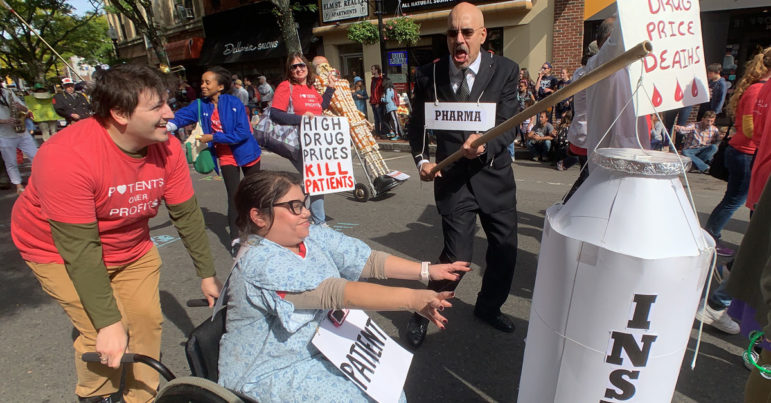Over the past few decades, the price of insulin has skyrocketed, creating a desperate situation for many Americans with type 1 diabetes who depend on insulin to survive. The price of one vial of insulin was $21 in 1996, but was more than $300 in 2019. The average annual cost of insulin for an American with type 1 diabetes was $5,705 in 2016, up from $2,864 in 2012.
About one in four people with diabetes have rationed their insulin because of the cost. Rationing insulin is very dangerous; in fact, ten people over the past three years have died from insulin rationing.
Unfortunately, the coronavirus pandemic may make this difficult situation even worse for insulin-dependent diabetics. COVID-19 is more dangerous for people with chronic conditions such as diabetes. The high price of insulin makes it much more difficult for people with diabetes to control their condition, which puts them at increased risk of COVID-19 complications.
Additionally, the difficulties acquiring insulin become more dire in this crisis, because people with diabetes know that if they were to run out of insulin and need hospital care, there may not be any beds for them. In New York Magazine, two members of the Right Care Alliance with type 1 diabetes, Deidre Waxman and Mishy Kats, talked about about their challenges preparing for COVID-19.
“It takes quite a bit of energy, especially if you’re already struggling.”
Mishy Kats, Right Care Alliance member
Both Waxman and Kats are anxious about maintaining their supply of insulin during the pandemic, even with health insurance. “You have to wait until you’ve got three days of the prescription left [to put in a new prescription], and that gives you very little time,” said Kats. “It takes quite a bit of energy, especially if you’re already struggling.” For Waxman, getting enough insulin in case of emergency is difficult because Medicare “is strict about the amount of prescription medication a person can fill at once.” She relies not just on Medicare but sometimes her friends and community members to help her get enough insulin.
Waxman and Kats agree that piecemeal solutions to the insulin crisis are not enough, that we need universal, affordable health care to ensure that all people have access to the medications that keep them healthy.
